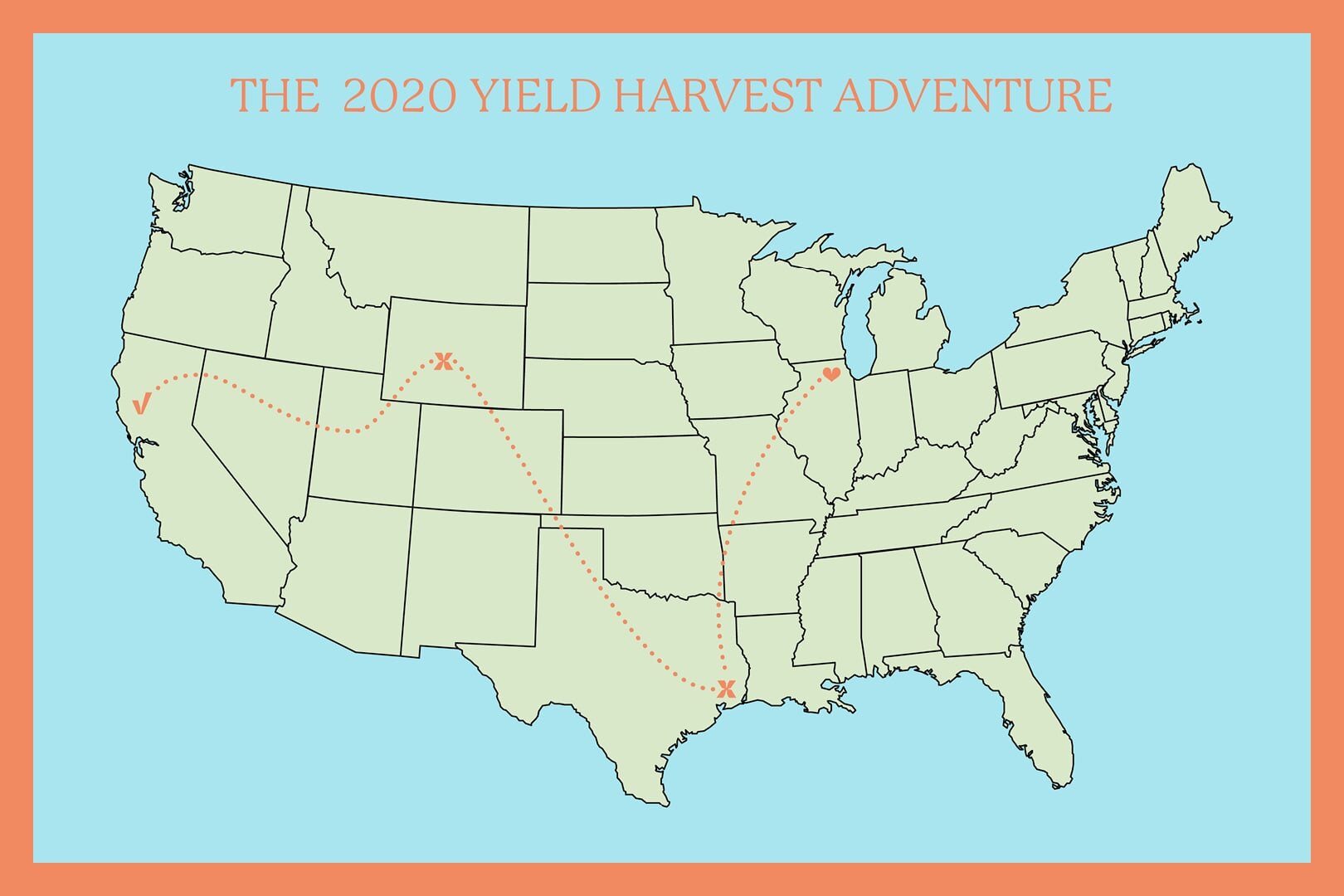Dispatches From the Dirt: An Improvisational Vintage
Finding community in the most challenging times.
Words by Jillian Riley, Illustration by John Hatherly
A cloud of smoke has descended on Willamette Valley. It is both literal and figurative.
On Saturday, I stopped briefly for gas in Wyoming. I was in the midst of my cross-country drive traveling to work harvest in Oregon. Wyoming seems wholly unaware a pandemic is quietly being battled around the country. The only mask I saw was my own. My phone dinged with a message from a friend that simply read, “I’m so sorry.”
I immediately picked up my phone to call, almost preemptively angry with him. What was he sorry for? What egregious infidelity had he committed against me?
“Oh,” he said, “I’m so sorry. I didn’t mean to be the one to tell you this. You need to check your e-mail.”
I opened my e-mail to find out that I was being called off, as a result of the wildfires in Oregon. My internship was canceled. Apparently, my friend knew someone else planning to work the same harvest who had made it to her e-mail before I had.
My first thought: “Fuck.”
My second thought: “I’m in the middle of fucking Wyoming.”
My third thought: “Just get out of Wyoming, and then you’ll figure it out.”
So, I drove and drove through the desolate rolling hills. In the patches where I got cell reception, I made calls to friends in the wine community.
“Know anyone looking for harvest workers. . . in mid September. . . during a pandemic. . . while wildfires rage?”
This was the amazing part. It was as though switchboards across the country began to light up. The wine cavalry was alerted, and they were coming to the rescue. I got calls from wine educators; I received e-mails from cellar masters. I had texts pinging in from importers and distributors. Everyone was trying to help. Maybe they didn’t have a spot, but they could call a colleague, who could call a friend, who just might have something. Some of these contacts I knew personally; many I did not. They heard one of their own was in need, and they banded together to come to the rescue.
I landed in Missoula, Montana for a couple of nights, a safe haven city where people were actually taking the virus seriously. I could get a hotel room with a small kitchen, where I could cook the pasta I had packed in the trunk of my car with plans to stock my pantry in Oregon. I sat on the fluffy bed, eating mac n’ cheese and fielding e-mails and phone calls from any wineries I was put in touch with.
A sommelier friend in the Healdsburg area of Sonoma didn’t hesitate when she heard I was in a bind.
“Come here,” she said, “stay as long as you like. The guest room is yours.” So, after 2 nights in Missoula, I packed up my mac n’ cheese and my yoga mat and headed for California.
The thick air in Nevada was unforgettable. I could have sliced it with a knife, and it was impossible to see through. When I reached the border near Sacramento, I thought I might be forced to turn back. Traffic had slowed almost to a stop, and I wondered if the area was going to be blocked off. I put on my KN95 mask while I drove and pushed through.
Sunset over Santa Rosa
Finally, as I reached Santa Rosa, I saw sun setting. The sky was clear. I sighed with relief. My friend and I met first at a Covid testing site to get swabbed as a precautionary measure. I then made my way to her home for a glorious and much-needed shower.
I spent the next couple of days with winemaker friends in Sonoma and Napa, checking in to see how harvests were going under the unusual circumstances. On Saturday, I received a text message from one of the winemakers I had spoken with the previous week.
“Want to start on Monday?”
The winery in the St. Helena area of Napa was known for making high-quality Cabernet Sauvignon. My first week would offer an extraordinary amount of learning and an expected amount of physical aching for this intern in her 30s.
It was what would happen at the end of week one that I never could have predicted, despite the fact the writing was perhaps on the wall.


